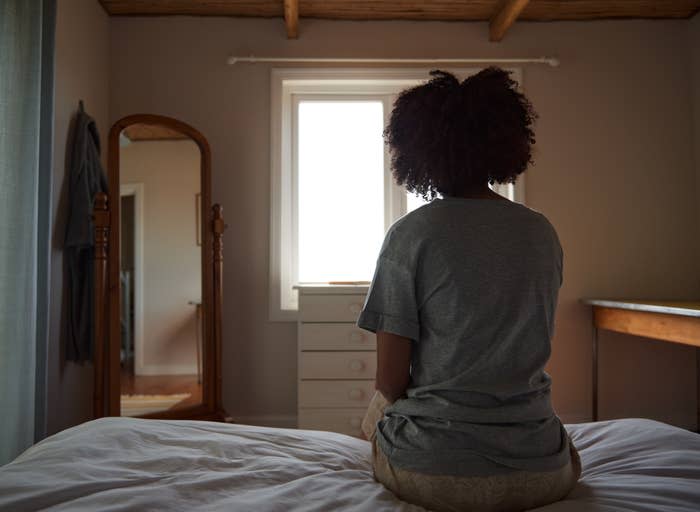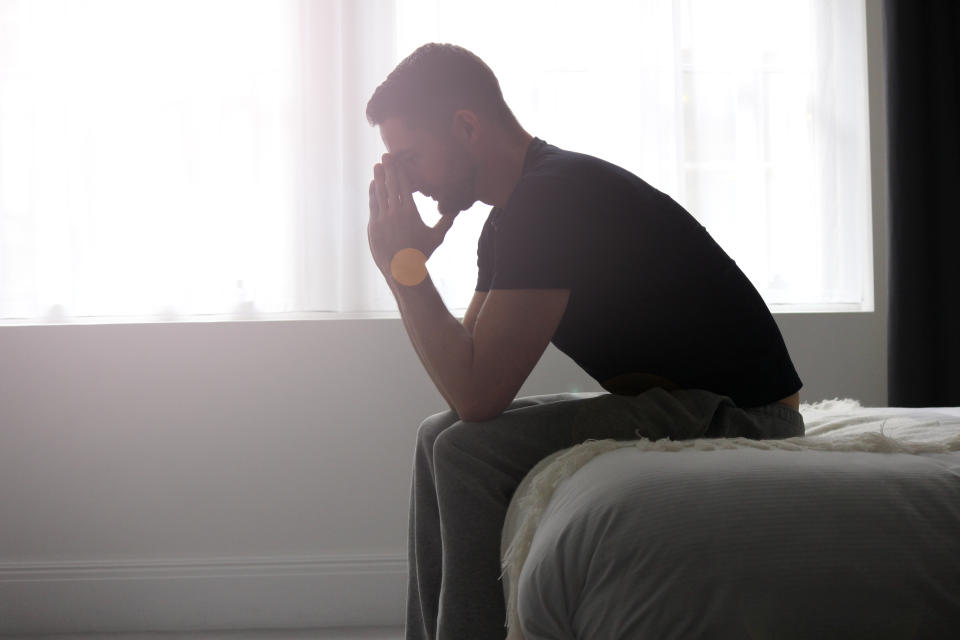This Woman Says She "Can't Stand" Having Sex With Her Husband And This Sex Therapist Is Explaining How To Handle This Type Of Situation
Warning: This post has mentions of sexual assault and sexual trauma.
Experiencing some sort of sexual trauma — at any age — is a terrifying and traumatizing experience that has lasting effects on people. According to studies, 45% of women and 65% of men who experienced sexual trauma have PTSD, which often affects who they trust and feel safe with.

During a recent Reddit scroll, I came across a Redditor's story in the r/relationshipadvice subreddit, explaining how they don't enjoy sex with their spouse. The OP shared how they did experience sexual trauma in their past, and that plays a large part in them not enjoying their sex life.
Knowing that this story must be one of many, especially after reading the many comments on the post relating to it, I reached out to certified sex and relationships therapist and author of Sex When You Don't Feel Like It: The Truth about Mismatched Libido and Rediscovering Desire, Cyndi Darnell, M.HSc, M.Nt, G.Dip. Couns, G.Dip App. Ling, B.Ed to learn how people can properly heal from any sexual trauma they have experienced.
"I think the first thing to acknowledge is that people who have lived with and survived sexual trauma are not a monolith. So it's not going to be the same for everybody, but for people for whom it does affect their relationships, it can manifest in a variety of ways," Cyndi told BuzzFeed.

"One of the most common is a sense of disembodiment. So, disembodiment might manifest as an inability to remain present. It might manifest as an inability to feel much. There may be numbness in the body, in the skin, in the genitals," she continued.
In the OP's story, they explained that they felt the need to be intoxicated to enjoy sex with their spouse, which in turn led to a drinking problem.

According to Cyndi, it's not uncommon for people who've experienced sexual trauma to cope in that way. "It may be difficult to experience pleasure for other people; it may lead to compulsive behavior. It may lead to people engaging in sex in ways that they don't necessarily want, but they feel compelled to do it for whatever reason. Perhaps with people who are not great for them, or activities that they think they probably shouldn't be doing because there's an element, perhaps, of dishonesty attached to it," Cyndi explained.
For people who thought they healed from their sexual trauma but are, in fact, still struggling, Cyndi suggests they "go back into some kind of therapy, whether it is traditional talk therapy or somatic therapy, which is not necessarily traditional, but it's very effective for this kind of work, and learn how to process what happened to you."

"It's about finding something that works for you depending on the degree to which the trauma affects you and how it affects you, whether it shows up in your ability to connect with people emotionally.
Whether it shows up in your ability to experience physiological pleasure, whether it shows up in you experiencing compulsive behavior and doing stuff that ultimately you know has short-term gratification at the moment, but long-term causes you problems in your life or. your relationships. Finding practitioners to talk through this with and finding people to talk through this with, is crucial," Cyndi explained to BuzzFeed.
Lastly, Cyndi suggests how someone can open up to their partner about their experience. "Hopefully, you have a partner who has empathy and compassion, and if you have established that they do, it would be about choosing a time when you're not in the middle of sex when you're not doing anything else. You can say something to the effect of, 'There's something I would like to share with you. It's a really big deal for me, and it's hard for me to talk about. Would you be open to hearing about some of my history and my experience around sex and why I struggle with it sometimes?'" Cyndi explained.

.
"This is a different kind of work. It's important that we don't bypass the healing part and just try to stack on pleasure feelings without having done some adequate emotional processing. Allow yourself the time and the grace for however long it takes, but know that it's completely worth it. You are not alone, and none of this was your fault," Cyndi said.
If you or someone you know has experienced sexual assault, you can call the National Sexual Assault Hotline at 1-800-656-4673 (HOPE), which routes the caller to their nearest sexual assault service provider. You can also search for your local center here.


